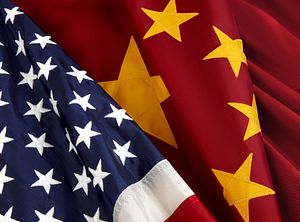The feng shui for this meeting is not propitious. Almost every significant interest group in the United States, and many political forces in China, have been offended by recent developments in the bilateral relationship. In July and August, Washington was reeling from a massive theft (attributed to China) of Office of Personnel Management data. My four-year-old granddaughter, like many other listeners, heard a more-than-faint resemblance between the smash-hit music from Disney’s Frozen and Beijing’s musical masthead for the recently awarded 2022 Beijing Winter Olympic Games. The U.S. Department of State’s Bureau of Democracy, Human Rights, and Labor picked the moment when the Chinese government is apoplectic about foreign “subversion” to release a call for NGOs to submit “Statements of Interest” in competing for $10 million to “support the bureau’s policy priorities of fostering democracy and human rights in China,” going on to advise potential applicants that “projects should have direct and lasting impact by promoting reforms and structural changes that take advantage of changing social and political dynamics in China…” Not to be outdone, with the U.S. trade deficit with China climbing rapidly, Beijing devalued its currency, thereby energizing many in the U.S. Congress to again agitate against currency “manipulation,” even though this devaluation may be a way-station toward a more market-driven exchange rate mechanism. All this was occurring amid an upswing in the arrest of lawyers and human rights activists in China, thereby energizing the American Bar Association, the New York Bar Association, and many others around the world to criticize human rights trends in the country.
All in all, this has been a terrible summer for U.S.-China relations, with both sides taking initiatives that empower those in each society that view the other increasingly as a strategic competitor.
Climbing the Real Summit
Going back to 1949, it is hard to discern a time in which Washington and Beijing have sent out more mutually contradictory strategic signals to each other. Given the tendency in both capitals to pay greater attention to negative than positive messages, there is a downward momentum in ties that is very concerning. This strategic slide needs to be addressed during Xi’s state visit. Unless the two presidents focus on this underlying problem, the upcoming summit may come to be viewed in history as having simply been a brief respite in the unhappy journey to more friction and perhaps intense conflict. Presidents Barack Obama and Xi Jinping need to develop and articulate a shared, more coherent, constructive, and domestically compelling rationale for the bilateral relationship, and then bring their respective behaviors into alignment with that vision. Given the domestic politics in both countries, this is a long shot.

































